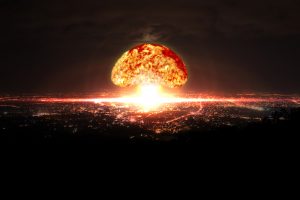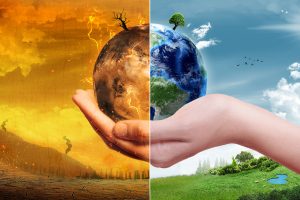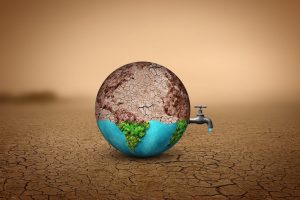‘From ecosystems to human civilisation; The stakes for our planet have never been higher’ — World top scientists delivered a stark warning.

Musa Sattar, UK
Climate change is profoundly affecting all life on Earth. The evidently dangerous and pervasive impacts of changing climate are deterring efforts to even meet the basic human needs. These worsening climate changes are threatening global sustainable development.
What Does IPCC Report Revealed About Climate Change?
In the recent report by The Intergovernmental Panel on Climate Change (IPCC), published on Monday, 28th February, Hoesung Lee, Chair of the IPCC remarked that ‘The report is a dire warning about the consequences of inaction. It shows that climate change is a grave and mounting threat to our well-being and a healthy planet.’
He also said that, ‘It also shows that our actions today will shape how people adapt to climate change and how nature responds to increasing climate risks… Half measures are no longer an option.’
According to the report, lives of billions of people across the globe and nature are endangered due to human-induced climate changes.
The adverse effects are worsened as compared to the previous assessments published just over 100 days.
The first IPCC report published in August 2021 was titled as ‘Code Red for Humanity’ by UN Secretary-General António Guterres.
Commenting on the recent report António Guterres said, ‘I have seen many scientific reports in my time, but nothing like this. Today’s IPCC report is an atlas of human suffering and a damning indictment of failed climate leadership.’
He added, ‘Delay means death. Now is the time to turn rage into action. The G20 must lead the way, or humanity will pay an even more tragic price.’
Executive Director of United Nations Environment Programme (UNEP) Inger Andersen said, ‘Humanity has spent centuries treating nature like its worst enemy. The truth is that nature can be our saviour – but only if we save it first.’
The report also indicates that today’s generation living in the year 2100 will be experiencing four times more climate extremes than they do now even with slightest of a degree of warming over today’s heat. But an increase of even 2 more degrees Celsius from now (3.4 degrees Fahrenheit) they will be challenged with five times the floods, storms, drought and heat waves.
Impending Threat of Nuclear War – Lessons Left Unlearned
Following Russia-Ukraine crisis and the rising global conflicts, the possibility of nuclear war has once again raised its proximity. There is enough scientific evidence that nuclear weapons are an intolerable threat to humanity
Nuclear war could severely disrupt the earth’s ecosystem and reduce global temperatures, resulting in food shortages around the world.
Whilst knowing the consequences of a nuclear war, instead of funding the fight against the climate crisis, big corporations and banks are investing billions in making of such hazardous weapons and ammunition.
The devastation caused by the two atomic bombs in Hiroshima and Nagasaki is known to all. The irony is that we still leave our lessons unlearned.
How Should We Tackle the Crisis of Climate Change?
From prohibition to the wastage of all-natural resources and their excessive consumption to encouraging of cultivating land and reforestation. From cleanliness of body and environment to protecting food and contamination. Islam’s comprehensive teachings are sufficient to save mankind from all its environmental problems.
About how to tackle the climate change, His Holiness, Hazrat Mirza Masroor Ahmad (aba), Worldwide Head of the Ahmadiyya Muslim Community said,
‘Climate change is a problem everywhere, all across the world. Especially in the third world countries where the population is increasing disproportionately. Just to accommodate the increased population, nations are developing new residential areas and because of this, forests are being cut and this deforestation is a major cause of climate change. So, you have to be very particular that whenever one tree is cut, two trees should be planted in return.’
Also in another occasion he said:
‘[There is pollution] because of the competition between nations, such as between China, India and America. So, every country has their own vested interest. They are not thinking about their future generations. So apart from properly planning how much fuel emission should be allowed and how can we control it – alongside it we should encourage and even enforce countries to plant more trees so the air pollution becomes less and in this way, it will help us to reduce climate change.’
Therefore, much of these global issues come down to the responsibility and decisions of those in authority. Wars, poverty, national health issues and economic downfalls can wholly or partly be avoided, if those in power not just act, but rather do so with absolute justice.
As Nick Clark, the environment editor at Al Jazeera English said, ‘the poorest countries in the world are having to spend scarce resources to adapt to a crisis not of their making – while the billions promised by richer nations to help them adapt are being spent making the crisis worse, arming the enemy from within.’
About the Author: Musa Sattar has an MSc in Pharmaceutical Analysis from Kingston University and also serves as the Assistant Manager of The Review of Religions and the Deputy Editor of the Science & Religion section.




Add Comment